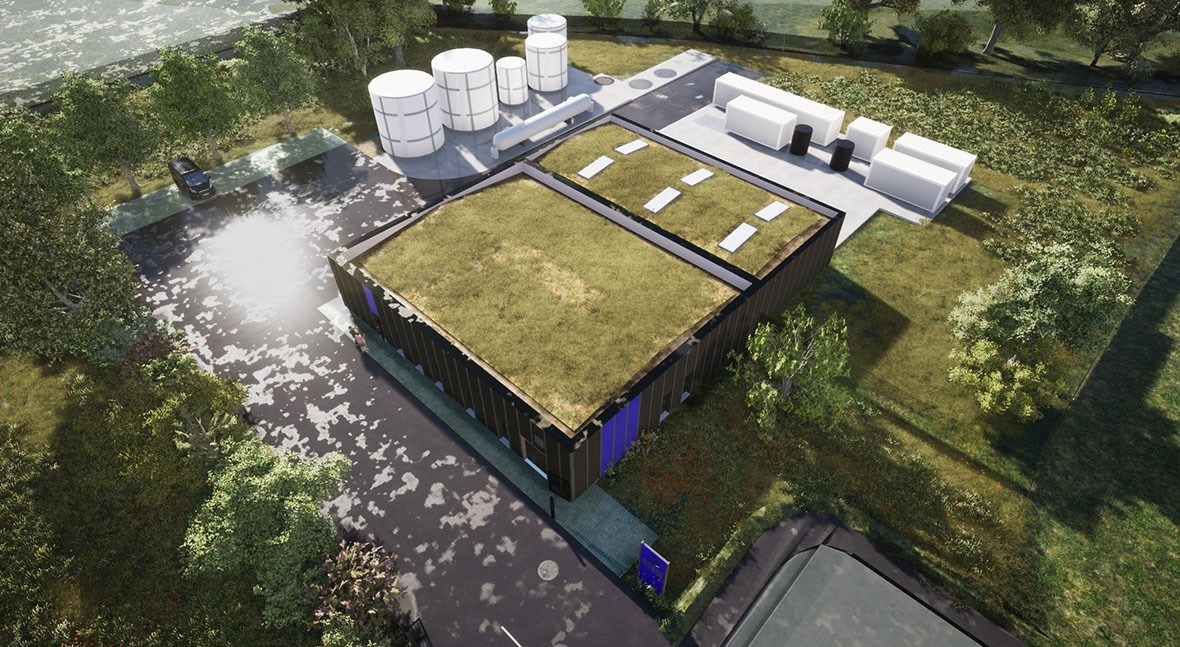"At Veolia Water Technologies we are a major contributor to all SDGs where water is concerned"
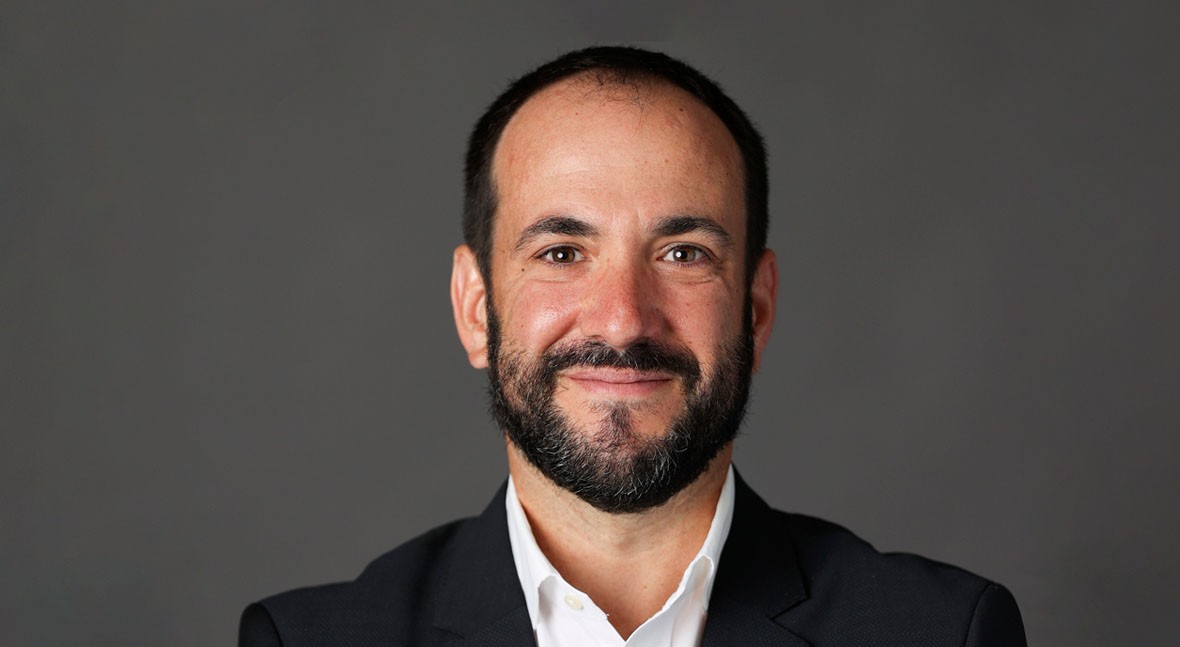
Veolia Water Technologies is a subsidiary of the France-based Veolia group. As an end-to-end water solutions company and with a worldwide network of businesses, the firm is a global leader in water and wastewater treatment.
French water and wastewater companies Veolia and Suez completed their merger process earlier this year and are on the way of becoming the world champion of ecological transformation. This ambitious metamorphosis would not be possible without the company’s firm commitment to achieving the Sustainable Development Goals (SDGs), and, in particular, wherever water is concerned in the case of Veolia Water Technologies. Vincent Caillaud, CEO of Veolia Water Technologies, spoke to us about innovation, water sustainability and the future of the water sector in the face of climate change.
Can you tell us briefly about your career path and your current role in Veolia?
I have spent my whole career working for Veolia, having been hired as a project manager for SIDEM, the desalination subsidiary of Veolia Water Technologies, after graduating in 2002. Over the following decade, I progressed within the company and took over operations of SIDEM in 2008. I first joined the Veolia Water Technologies leadership team in 2016 as CEO of the Oil & Gas business and moved on to COO of the company in 2019. I have been CEO since 2020.
I’m proud to lead Veolia Water Technologies, a team of more than 7,000 people spanning 48 countries. I’m also extremely proud of working for a company that has committed to lead the ecological transformation. As a company, we want to make a difference, to contribute to tackling the effects of climate change and coping with scarcity of resources, minimizing pollution and reducing threats to biodiversity. Personally, I want to be part of the solution, I want to take action.
We introduced usefulness to our strategic vision and we made it our purpose to contribute to human progress by committing to the SDGs
I strongly believe in driving positive environmental change through strategic and innovative technologies and services. I feel that Veolia Water Technologies is well positioned to do just that.
How is Veolia Water Technologies using the SDGs to improve its performance towards sustainability?
In 2020, we introduced usefulness at the heart of our strategic vision and we made it our purpose to contribute to human progress by firmly committing to the SDGs. This translates to a commitment to achieve a multifaceted performance that equally considers financial, commercial, social, societal and environmental performance. This goes well beyond a typical CSR objective; it is at the heart of what we do.

At Veolia Water Technologies we are a major contributor to all SDGs where water is concerned. Many of our customers already have ambitious environmental targets and are looking for a partner with the technical know-how to assist them in reaching their goals. Others are getting started on this journey and need to be guided along the way. With all, we share our high level of commitment to sustainability and our expertise to find ways to optimize their water cycle and reduce their environmental footprint.
How does Veolia Water Technologies contribute to achieving all SDGs where water is involved?
We have always believed that innovation advances water sustainability and improves resilience. When leveraged with our vast experience and with the quality of our technologies and services, our high capacity for innovation becomes a powerful tool that allows us to design solutions that bring long-term results for our clients.
We are very proud to have been involved in creating France's first energy-positive wastewater treatment plant in Cagnes-sur-Mer
We are very proud to have been involved in creating France's first energy-positive wastewater treatment plant in Cagnes-sur-Mer, contributing to SDG 7: Affordable and clean energy. SDG 14 is about life below water; in Canada, our teams are working on cleaning Randle Reef, the largest PAH-contaminated sediment site on the Canadian Great Lakes.
We have been partnering for many years with BlueKolding, a wastewater utility in Denmark that are true pioneers of a circular vision where one’s waste is another one’s valuable resource. They embody SDG 11: Sustainable cities and communities. In a remote area of Sri Lanka and in densely populated Beirut, we are helping to provide access to water which in turn contributes to reducing inequalities and poverty, in line with SDG 1.
I could go on and on. But the basic fact is that we tackle many different challenges alongside our customers, and we are committed to helping them meet their environmental, performance and financial objectives.
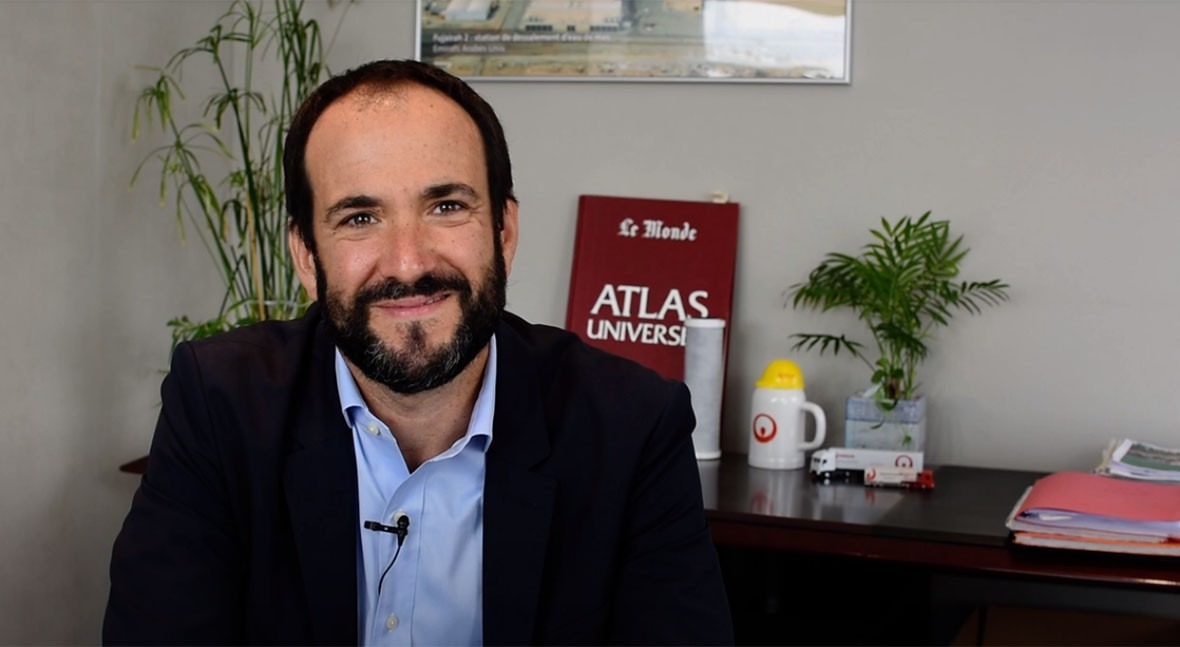
What role does digitalization play in advancing water sustainability and resilience?
Better managing water demand in the future is key; I believe real-time data and analytics will help us bridge the increasing gap between supply and demand by helping us be more efficient and smarter in how we use our water resources. Digital already plays a key role in efficiency which, with scarcity and quality, are the three main water challenges.
But efficiency goes beyond simply being compliant with the regulation in place, or being cost-efficient. We live in a rapidly changing world where our customers have to deal with increasingly complex issues. Recent events like the COVID-19 pandemic or extreme weather events related to the intensification of climate change, have really highlighted how water treatment plant operators must ensure the sustainability and the resilience of their operations, even under very challenging or unforeseen conditions. A lot of complex decisions have to be made in a very short time, often under a lot of pressure. This is where digital can also help.
Many of our customers have ambitious environmental targets and are looking for a partner with the know-how to assist them in reaching their goals
For businesses, they need to fully comprehend their data to know how much water their operations really require and put in place processes and technologies that reduce water consumption by facilitating reuse and recycling.
For municipalities, we have already started using both live and forecast weather data to predict the impact of weather events on the surrounding environment and the local water infrastructure. We need more municipalities working in this space and using analytics to help plan for both droughts and flooding as the rate and intensity of these events increase. Digital is also a fantastic tool to better manage energy consumption and maximize the use of renewable energy, with wastewater treatment plants going from being big energy consumers to becoming energy producers.
And for us, the consumers, we have a vital role to play. Data and AI will help us adopt more sustainable behaviours by giving us the insight to make better choices when it comes to our water usage. In the face of climate change, we will need to better monitor our ‘small’ everyday necessities to lessen the impact on the environment and to make sure resources are shared.
Veolia and Vendée Eau launched the Jourdain programme, the first experiment in Europe in wastewater treatment for the supply of drinking water. Could you tell us a bit more about Veolia’s Reuse of Treated Wastewater solution?
The Jourdain programme being implemented in France by Vendée Eau, a local water public authority, addresses a critical need: the reuse of wastewater in an area under water stress during the summer months. This unique project in Europe aims not only to provide a reliable source of drinking water for the future but also to reduce our client's environmental footprint.
This programme will tackle water shortages through refill of freshwater storage and indirect potable reuse. The technology at its heart is the Barrel™, a low-pressure reverse osmosis vessel that contains 200 membrane elements. In addition to the usual macro-pollution parameters, this refining process will also make it possible to significantly reduce salinity, microbiological compounds and micropollutants such as pesticides, pharmaceutical or industrial compounds. The refined water will then be returned to the Jaunay reservoir in complete safety for the environment and for the users.
The water that will be produced will be of very high quality — we have made strict commitments to meet the specifications set by Vendée Eau regarding the environmental and health objectives of the programme. To reach this level of commitment, we rely on more than 20 years of expertise and feedback of advanced treatment carried out on projects all over the world.
Veolia announced in 2020 its project to create the world leader in ecological transformation. What role did the merger with Suez play in Veolia’s plans to achieve this ambitious goal?
The scale, speed and impact of climate change are undeniable. Increased pollution and pressure on resources and ecosystems mean that we no longer have time for a transition: we need to quickly transform the way we produce and consume. Bringing our two groups together allows us to build the world champion of ecological transformation. It gives us the means to achieve our ambition, to turn the tide together.
The podcast series includes nine episodes, each featuring inspiring real-life stories that show the Sustainable Development Goals in action
Combining our resources, our expertise, our ideas and our know-how will allow us to move faster, to reach wider. We strongly believe that it will benefit our customers, communities and industries, by giving them access to more solutions to achieve their ecological transformation.
Veolia recently launched a podcast series called Blue Gold. Could you tell us a bit more about this initiative?
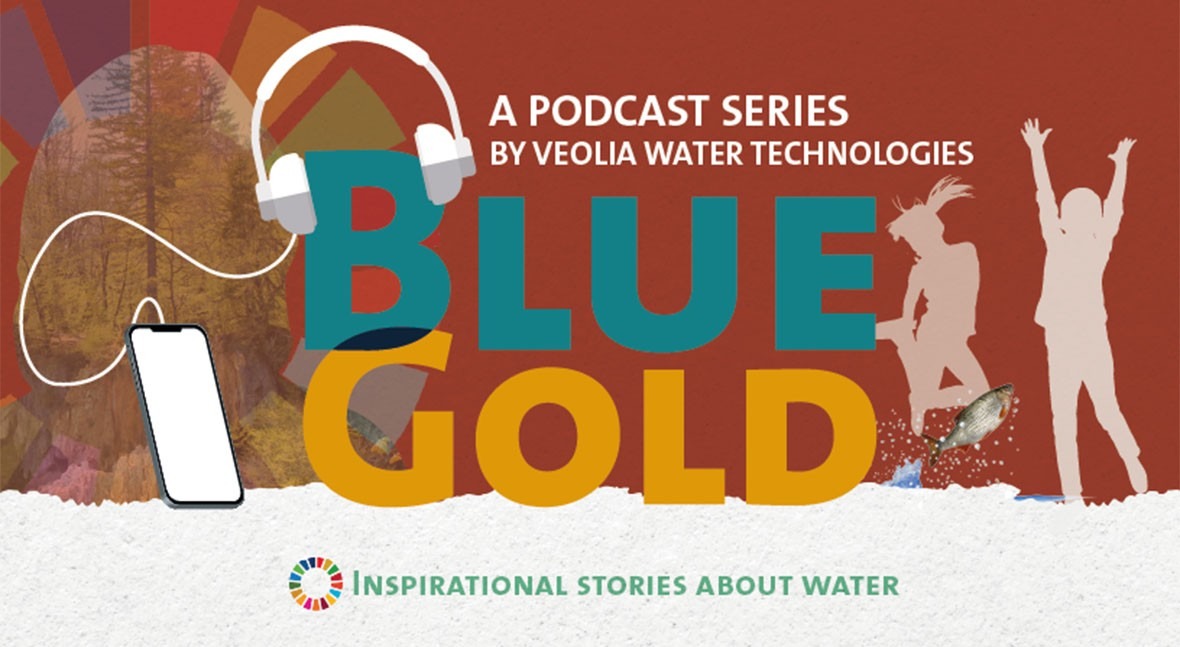
As a company made of many engineers with technology at its core, we have been guilty in the past of focusing too much on that aspect of our work without insisting enough on the global picture: what do we ultimately achieve? How do we impact the world we live in? The SDGs are, above all, a human journey. And so came the idea to create a podcast to shine a light on the true stories of our customers, partners and employees who are working together to preserve water, provide sustainable cities and communities for future generations and fight climate change.
The podcast series, called Blue Gold, includes nine episodes, each featuring inspiring real-life stories that show the Sustainable Development Goals in action. Each story is told by people who work every day to protect our global water resources. These are all highly innovative projects led by passionate people, from Veolia, public authorities and businesses all over the world.
What do you see in the future of the water industry twenty years from now?
My vision is that most of the water we consume is reused. Reuse is a proven weapon for combating water shortage and is something that is underutilized.
Regardless of where we are in the world and our current water access, we all need to treat water as a scarce resource. The already strained relationship between water availability and demand is about to get even more complex and it will impact us all. Individuals, communities, businesses and industries — we must all take immediate action to safeguard our water today, not tomorrow.
The good news is that solutions exist. And even though there is still some hesitation in taking the big leap towards fully embracing wastewater reuse for consumption, we are making progress.
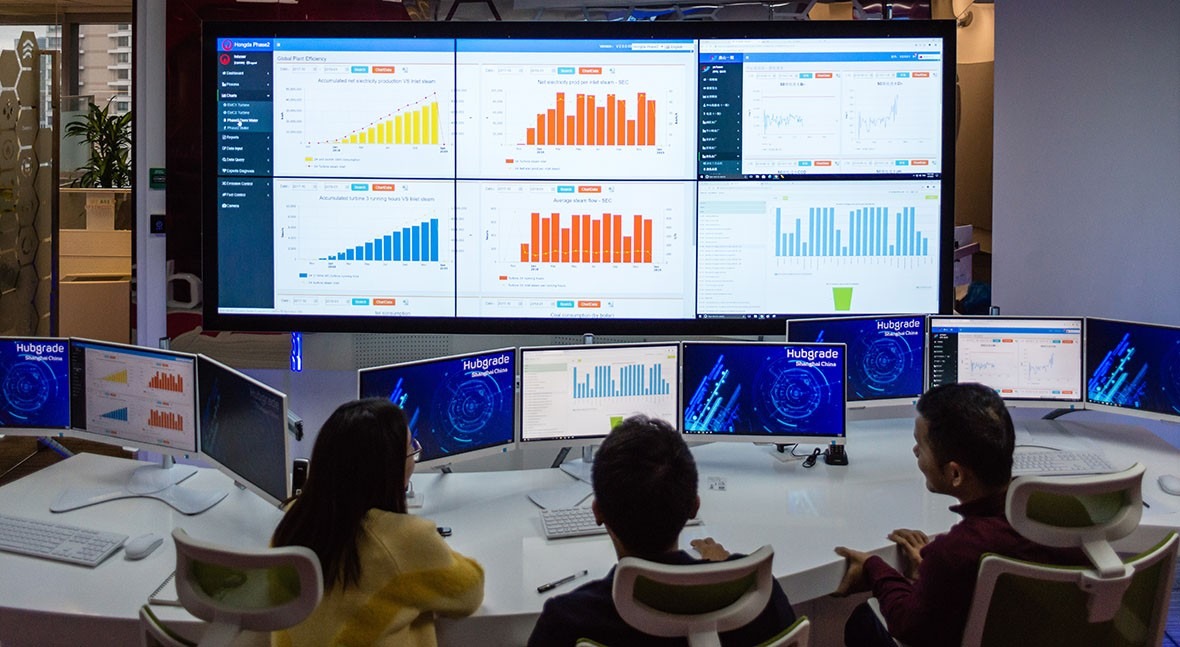
Meeting the growing demand for water is a planet-wide challenge that is only going to get tougher. But I started this interview by saying that I believe in driving positive environmental change through innovative technologies and services. I stand by that statement: the next 20 years will continue to see these innovations come to life, and Veolia Water Technologies will be part of the transformation.



